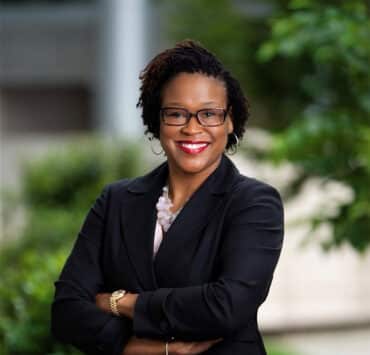|
Getting your Trinity Audio player ready...
|
A little over two years ago, Andrew Gratz was attending an executive development program at LyondellBasell, a publicly traded petrochemical company where he has led numerous legal and compliance teams over the past fifteen years. During a robust discussion on leadership development, Gratz’s mind focused on a critical query: Why isn’t leadership taught and strongly encouraged within the legal profession?
“Reflecting on the early stages of my career, and after talking with peers and colleagues, I realized that the legal profession doesn’t focus enough on the need for lawyers to develop into effective leaders,” says Gratz, who currently serves as associate general counsel at LyondellBasell. “I believe this deficiency is one of the primary reasons why disenchantment and disengagement is rampant among legal practitioners. If lawyers are expected to lead, we must equip them with the proper skills and training to do so. While I’ve been very fortunate to work with incredible leaders and mentors, especially in-house, the legal profession, in and of itself, has a leadership gap that needs to be addressed.”
“If lawyers are expected to lead, we must equip them with the proper skills and training to do so.”
Andrew Gratz
After having his epiphany on the leadership gap within the legal profession, Gratz decided he would not be a passive observer. He immediately took action. Incorporating lessons learned from his multidecade legal career, MBA education, and work in government relations, Gratz wrote a series of articles for Corporate Counsel magazine on how lawyers can develop effective and efficient legal teams. However, sharing this thought leadership was only the first step in Gratz’s journey.
Believing he needed to do more to close the leadership gap within the legal profession, Gratz quickly transitioned from writing articles to developing a semester-long class for law students at his alma mater, the University of Houston Law Center. Without any prior teaching experience, Gratz developed the criteria, goals, and expectations for Lawyers as Leaders, a class dedicated to providing critical leadership skills and training to lawyers.
“Andrew’s contribution to the legal profession and his desire to inspire the next generation of lawyers is incredible. I’ve been very impressed with how many people he has impacted in such a short amount of time,” Justin Savage, partner and global coleader of the environmental practice at Sidley Austin LLP, says.
“My goal in developing Lawyers as Leaders was simple. I wanted to equip law students with the leadership acumen vital for success, both in and out of the legal realm. For this reason, as I was developing this class, I met with business leaders across a variety of industries. Each said they wanted more from their legal partners. All wanted their legal teams to demonstrate more effective leadership, regardless if they were being asked to manage transactions, litigation matters, global risk, board concerns, or investigations,” Gratz says.
“The overall consensus was that many lawyers are not pragmatic and business-minded. At the end of the day, business leaders want an attorney who sees not only the risk, but the reward as well. They want leaders on their legal teams, not just technocrats,” he says.
Gratz also spoke with numerous general counsels and managing partners from many Am Law 50 firms. “I wanted to know what kind of gaps and concerns they saw in our profession. I also asked how these legal leaders effectively lead their organizations and the skills required to manage sophisticated and experienced legal teams,” Gratz says.
“Andrew stands out for his strategic mindset, insight, and creativity in leading diverse teams and complex transactions. He focuses on the long game and really raises the bar for his peers and colleagues,” says Herschel Hamner, partner at Sidley Austin LLP.
Based on the feedback he received from students and legal practitioners as a result of teaching Lawyers as Leaders, and fueled by his relentless drive and collaborative spirit, Gratz approached the University of Houston Law Center with the idea to establish an initiative dedicated to providing critical leadership skills and training to the entire Houston legal community. The University of Houston Law Center established the Initiative on Lawyers as Leaders in early 2024 partly based on Gratz’s thought leadership with the aim of demonstrating through class offerings, lectures, scholarship, mentoring, and forums that leadership has an appointed role in the practice of law. Gratz’s goals for the Initiative are front and center:
“The Initiative on Lawyers as Leaders at the University of Houston Law Center is dedicated to providing law students the skills and knowledge needed to assume leadership roles in the public and private sector and promoting the study of what it means to be an effective and productive leader outside of the legal community.”
“At the end of the day, business leaders want an attorney who sees not only the risk, but the reward as well.”
Andrew Gratz
Amidst teaching his second semester, the class Gratz created isn’t just another academic venture—it’s a catalyst for change that he hopes will reach beyond the Houston legal community.
By challenging students to define their leadership ethos and explore their values, he hopes to ignite a passion for purpose-driven leadership in the next generation of legal professionals. “Making sure your client looks to you, not simply as a lawyer, but as a valued advisor, counselor, and leader, is the key to a successful career,” Gratz explains. “Academia, corporations, law firms, and nonprofits must work together to help lawyers achieve this vital goal.”


